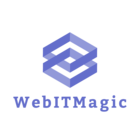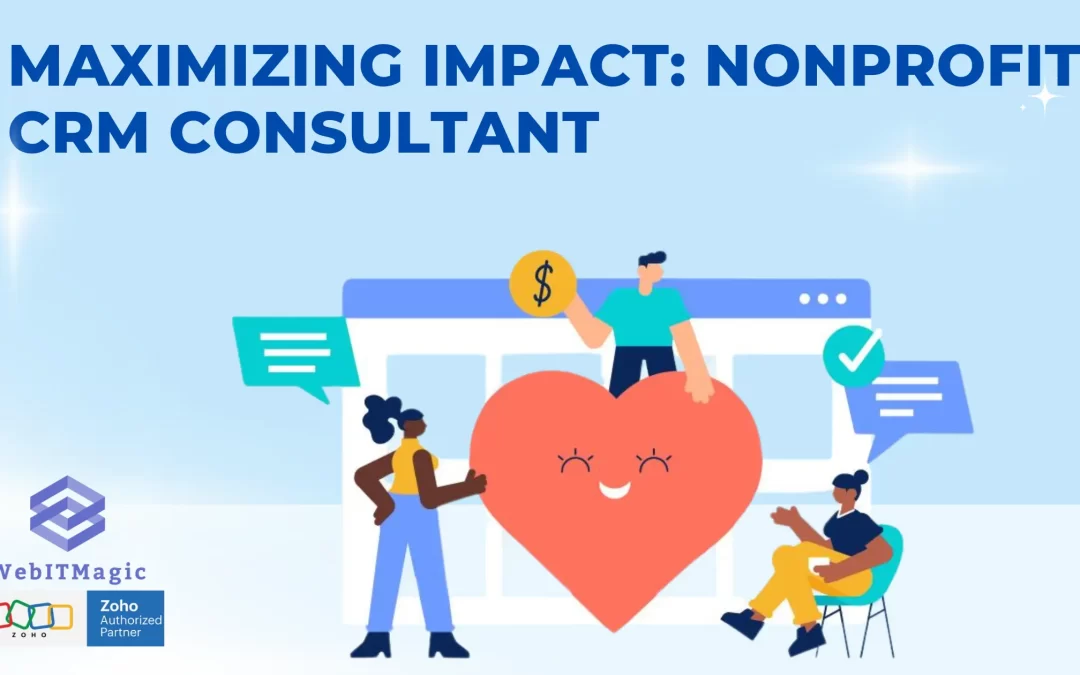A nonprofit CRM consultant is a specialist who assists nonprofit organizations in managing their relationships with donors, volunteers, and other stakeholders effectively. Their primary duties include assessing organizational needs, implementing tailored CRM solutions, training staff, and evaluating the CRM system’s impact. These consultants also help integrate CRM systems with fundraising and donor management processes for improved efficiency.
Leveraging their expertise in CRM technology and industry best practices, consultants provide valuable insights and recommendations to nonprofit organizations. They collaborate closely with organizational leadership and staff to understand specific challenges and objectives, developing customized CRM strategies to address these needs. This approach helps nonprofits optimize their use of CRM technology to foster strong relationships with supporters.
The consultant acts as a trusted advisor throughout the CRM implementation process and beyond. They offer continuous support and guidance to ensure the CRM system adapts to the organization’s changing requirements. By doing so, nonprofit CRM consultants play a vital role in helping organizations maximize their impact and achieve their missions through effective relationship management.
Key Takeaways
A nonprofit CRM consultant plays a crucial role in helping organizations effectively utilize customer relationship management systems to achieve their mission and goals.
Assessing the specific needs of a nonprofit organization is essential in determining the right CRM solution that will best support its operations and objectives.
Implementing a customized CRM solution involves tailoring the system to meet the unique requirements and processes of the nonprofit, ensuring seamless integration and functionality.
Providing comprehensive training and ongoing support for nonprofit staff is vital in maximizing the benefits of the CRM system and ensuring its successful adoption and utilization.
Measuring and analyzing the impact of the CRM system on the organization’s operations and outcomes is essential for making informed decisions and improvements.
Assessing the Needs of Your Nonprofit Organization
- Conducting a Thorough Assessment
The consultant begins by conducting a thorough assessment of the organization’s current systems, processes, and challenges. This may involve reviewing existing data management practices, analyzing the organization’s goals and objectives, and identifying areas for improvement.
- Developing a Customized CRM Solution
By gaining a comprehensive understanding of the organization’s unique needs and pain points, the consultant can develop a customized CRM solution that addresses those specific challenges. In addition to assessing the organization’s internal needs, the consultant also considers external factors such as donor expectations, industry trends, and regulatory requirements.
- Aligning with the Organization’s Mission and Goals
By taking into account both internal and external factors, the consultant can develop a comprehensive CRM strategy that aligns with the organization’s mission and long-term goals. Ultimately, the needs assessment phase empowers the nonprofit to effectively manage its relationships with donors, volunteers, and other stakeholders.
Implementing a Customized CRM Solution
Once the needs assessment is complete, the nonprofit CRM consultant begins the process of implementing a customized CRM solution for the organization. This involves selecting the appropriate CRM technology, customizing it to meet the organization’s specific needs, and integrating it with existing systems and processes. The consultant works closely with the organization’s leadership and staff to ensure a seamless transition to the new CRM system.
Selecting the right CRM technology is a critical decision that requires careful consideration of factors such as functionality, scalability, and cost. The consultant leverages their expertise in CRM technology to identify the best solution for the organization’s needs, taking into account factors such as user-friendliness, data management capabilities, and reporting features. Once the CRM technology is selected, the consultant works to customize it to align with the organization’s unique requirements, ensuring that it effectively supports the nonprofit’s mission and goals.
In addition to technology selection and customization, the consultant also focuses on integrating the CRM system with existing processes and systems within the organization. This may involve migrating data from legacy systems, establishing data governance protocols, and training staff on how to use the new CRM technology. By taking a comprehensive approach to implementation, the consultant ensures that the organization is well-equipped to leverage its new CRM system to effectively manage its relationships with donors, volunteers, and other stakeholders.
Training and Support for Nonprofit Staff
Training and Support for Nonprofit StaffMetrics
Number of staff members trained100
Training hours per staff member20
Staff satisfaction with training90%
Retention rate post-training95%
Training and support for nonprofit staff are essential components of successful CRM implementation. The nonprofit CRM consultant plays a key role in providing training and support to ensure that staff are equipped to effectively use the new CRM system. This may involve developing training materials, conducting workshops and webinars, and providing ongoing support as staff become familiar with the new technology.
The consultant works closely with staff at all levels of the organization to ensure that they understand how to use the CRM system to its full potential. This may involve training front-line staff on data entry best practices, coaching managers on how to use reporting features to track key performance indicators, and providing executive leadership with insights on how to leverage CRM data for strategic decision-making. By tailoring training and support to different roles within the organization, the consultant ensures that staff are empowered to effectively use the CRM system in their day-to-day work.
In addition to initial training, ongoing support is crucial to ensuring long-term success with the CRM system. The consultant provides continued assistance as staff encounter new challenges or opportunities related to CRM usage. This may involve troubleshooting technical issues, providing guidance on best practices for data management, or offering insights on how to leverage CRM data for strategic initiatives.
By offering ongoing support, the consultant helps ensure that staff are able to maximize their use of the CRM system over time.
Measuring and Analyzing Impact
Measuring and analyzing impact is a critical aspect of nonprofit CRM consulting. The consultant helps organizations develop key performance indicators (KPIs) and metrics to track the impact of their CRM system on relationship management, fundraising efforts, volunteer engagement, and other key areas. By establishing clear metrics for success, the consultant enables organizations to effectively measure the impact of their CRM system and make data-driven decisions to improve their strategies.
In addition to establishing KPIs, the consultant helps organizations develop reporting capabilities within their CRM system to track progress against these metrics. This may involve creating custom reports and dashboards that provide real-time insights into key performance indicators, enabling staff at all levels of the organization to monitor progress and make informed decisions based on data. By providing organizations with robust reporting capabilities, the consultant empowers them to effectively measure and analyze the impact of their CRM system.
Furthermore, the consultant helps organizations leverage data analytics tools to gain deeper insights into their relationships with donors, volunteers, and other stakeholders. By analyzing trends in donor giving patterns, volunteer engagement levels, and other key metrics, organizations can identify opportunities for improvement and develop targeted strategies to enhance their impact. The consultant’s expertise in data analysis enables organizations to unlock valuable insights from their CRM data, ultimately leading to more effective relationship management and fundraising efforts.
Integrating CRM with Fundraising and Donor Management
- Streamlining Processes and Gaining Insights
A nonprofit CRM consultant works closely with organizations to ensure seamless integration of their CRM system with fundraising platforms, donor databases, and other key systems used for donor engagement. By integrating these systems, organizations can track donor interactions, manage fundraising campaigns, and personalize communications with donors. This integration provides insights into donor giving patterns, tracks campaign performance, and identifies opportunities for targeted outreach.
- Optimizing Fundraising Efforts
By leveraging their CRM system, organizations can optimize their fundraising efforts and build stronger relationships with donors. The consultant helps organizations integrate CRM with fundraising platforms to gain a deeper understanding of their donors, track campaign performance, and identify opportunities for targeted outreach.
- Comprehensive Donor Management
In addition to fundraising integration, the consultant also focuses on integrating CRM with donor management systems to ensure a comprehensive view of donor engagement. This integration enables organizations to track donor interactions across all touchpoints, gain insights into donor preferences and behaviors, and personalize communications based on donor history. This holistic approach enables organizations to effectively manage their relationships with donors and maximize their fundraising impact.
Continuously Improving and Adapting the CRM System
Continuously improving and adapting the CRM system is an ongoing focus for nonprofit CRM consultants. The consultant works with organizations to regularly assess their CRM strategy, identify areas for improvement, and adapt their approach based on changing needs and opportunities. By taking a proactive approach to continuous improvement, organizations can ensure that their CRM system remains aligned with their mission and goals over time.
The consultant helps organizations leverage feedback from staff, donors, volunteers, and other stakeholders to identify opportunities for improvement within their CRM system. This may involve conducting surveys, gathering user feedback, and analyzing usage patterns to gain insights into areas for enhancement. By actively seeking input from stakeholders, organizations can identify opportunities for improvement and adapt their CRM strategy accordingly.
Furthermore, the consultant helps organizations stay abreast of industry trends and best practices in nonprofit relationship management. By staying informed about emerging technologies, evolving donor expectations, and changing regulatory requirements, organizations can adapt their CRM strategy to remain competitive in an ever-changing landscape. The consultant provides valuable insights into industry trends and best practices, enabling organizations to continuously improve their approach to relationship management.
In conclusion, nonprofit CRM consultants play a critical role in helping organizations effectively manage their relationships with donors, volunteers, and other stakeholders. By assessing organizational needs, implementing customized CRM solutions, providing training and support for staff, measuring impact, integrating with fundraising efforts, and continuously improving their approach over time – consultants enable nonprofits to maximize their impact through effective relationship management.
One related article to nonprofit CRM consultant is “The Top 10 Nonprofit CRM Software Solutions” from Array. This article provides a comprehensive overview of the top CRM software solutions specifically designed for nonprofit organizations, helping them to effectively manage their donor relationships and improve their fundraising efforts. It offers valuable insights and comparisons to help nonprofits make informed decisions when choosing the right CRM software for their needs. https://www.arrayapp.com/top-10-nonprofit-crm-software-solutions.
FAQs
- What is a nonprofit CRM consultant?
A nonprofit CRM consultant is a professional who specializes in helping nonprofit organizations select, implement, and optimize customer relationship management (CRM) systems. These consultants have expertise in understanding the unique needs and challenges of nonprofit organizations and can provide tailored solutions to help them effectively manage donor relationships, fundraising efforts, and program management.
- What services does a nonprofit CRM consultant provide?
A nonprofit CRM consultant provides a range of services including needs assessment, CRM system selection, implementation, customization, training, and ongoing support. They may also offer strategic guidance on how to leverage CRM technology to improve donor engagement, streamline operations, and achieve organizational goals.
- Why should a nonprofit organization hire a CRM consultant?
Nonprofit organizations can benefit from hiring a CRM consultant to ensure they select the right CRM system for their specific needs, avoid costly implementation mistakes, and maximize the value of their investment. Consultants can also provide valuable expertise and guidance on best practices for using CRM technology to support fundraising, donor management, and program delivery.
- How can a nonprofit CRM consultant help with donor management?
A nonprofit CRM consultant can help organizations effectively manage donor relationships by implementing CRM systems that centralize donor data, track interactions, and provide insights for targeted communication and stewardship. Consultants can also advise on strategies for segmenting donors, personalizing communications, and measuring the impact of fundraising efforts.
- What are the key considerations when hiring a nonprofit CRM consultant?
When hiring a nonprofit CRM consultant, organizations should consider the consultant’s experience working with nonprofit clients, their knowledge of CRM systems commonly used in the nonprofit sector, their track record of successful implementations, and their ability to provide ongoing support and training. It’s also important to assess the consultant’s understanding of nonprofit fundraising and donor management best practices.


Recent Comments